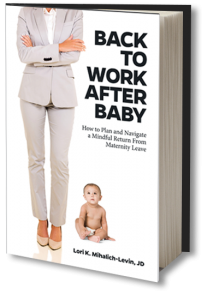 “Have you heard about the 3 H’s?” my husband asked me, as he closed the front door of our house behind Steven. “No, what’s that?” I inquired, always eager to learn whatever wisdom Steven Cohen, our family’s – though primarily Jason’s – professional organizer had imparted during his session. Not only is Steven a godsend in the house-and-office clutter department, but his prior training in social work means he brings to his organizing passion a deep understanding of human psychology.
“Have you heard about the 3 H’s?” my husband asked me, as he closed the front door of our house behind Steven. “No, what’s that?” I inquired, always eager to learn whatever wisdom Steven Cohen, our family’s – though primarily Jason’s – professional organizer had imparted during his session. Not only is Steven a godsend in the house-and-office clutter department, but his prior training in social work means he brings to his organizing passion a deep understanding of human psychology.
“It stands for ‘hug, help, or heard,’” Jason shared. “When someone is having a challenge and you’re not sure what they need, you can ask: do you need a hug, do you need help, or do you simply need to be heard?” My brain immediately started spinning with all the many applications of this simple formula. “Ooh, that’s a good one,” my eyes lit up. “We’ll share it with the kids at dinner!”
Which we did, of course. My youngest, as I suspected he’d do, declared emphatically, “I NEED TO BE HEARD!!”. My 13 year-old simply rolled his eyes.
I realize now, after some poking around online, that I’m just a bit late to the 3Hs game. This New York Times article on the helpful construct came out in April of last year: When Someone You Love is Upset, Ask This One Question. I’m sure the idea has been around a lot longer than when someone turned it into a catchy 3’s H’s framework. And there’s been a fair amount written online about how this concept applies at home – both to children and to our partners.
I fully intend to use the 3H’s moving forward with my kiddos. When one son is stuck on a homework assignment, or the other is having a struggle with a friend, I’ll pause and ask which of the three he needs. And Jason and I have already started experimenting with it. Even just a few days of keeping the 3 H’s top of mind has had the added benefit of many more hugs, because it turns out that’s usually all we really need.
What I haven’t yet read anything about, though, is how the 3 H’s might be helpful in our workplaces. The NYT article frames this as a tool you can use for loved ones, but I think it can be helpful for managers and direct reports, too. Yes, I’m aware that you may not want to hug your co-worker, but hear me out.

Using the 3 H’s at Work
If you’re a manager, and someone has just come into your office or virtual Zoom room with a problem, your initial instinct may be to problem solve. That’s your role as a manager, right? Fix the problems and keep the trains running. I’ve definitely taken this approach with people on my own teams. But the more I think about the other two options – heard and hug – it strikes me that managers may overutilize the “I’m going to help you” muscle. To support colleagues in growing in their roles and also feeling connected to and engaged with the team as a whole, what would it look like not to jump to the conclusion that your direct report is asking for help?
Mangers: if someone comes to you with an issue, can you pause and ask them what they really need from you? For some colleagues with whom you are particularly close, including “hug” in the list of options may be just fine. But for others for whom awkwardness would ensue, let’s brainstorm alternatives. For an in-person meeting, perhaps you could ask: do you need my help, do you need to be heard, or do you need some quiet empathy from me? For a virtual meeting, perhaps the last option could be a reaction emoji.
I’ll also put a special plug in for managers of people returning to work after parental leave. When a direct report comes back, asking what the new parent needs to succeed using this – or any! – framework is so critical. Your colleague could probably use all three of the H’s in this important life transition, and it will mean so much to them that you asked.
Direct Reports: before you walk into your manager’s office (real or virtual) in need of support, can you pause and ask yourself what you really need from them? Do you need help problem solving? Do you need to be heard? Or do you just need a hug or silent empathy? Being able to articulate your needs clearly when you present a situation to your manager will increase exponentially the chances of your getting those needs met.
As humans, we all have needs for support from our community around us, whether that’s a work community, family, neighbors, or friends. Being able to state our needs in the form of one or more of the 3 H’s not only helps us solve the problems we are grappling with but can also serve to strengthen the connections between us. What a gift.
Want more practical tips on working parenthood? Check out my book, Back to Work After Baby: How to Plan and Navigate a Mindful Return from Maternity Leave



I didn’t know about this. wow. good advice. 🙂
I agree – it’s a good one! Thanks for your comments, Emily, and glad it resonated.
Love this idea! I am always telling my husband I want support not a fix. I sent him this article
So glad it resonated, Jessica – and thanks for forwarding on to your hubby!